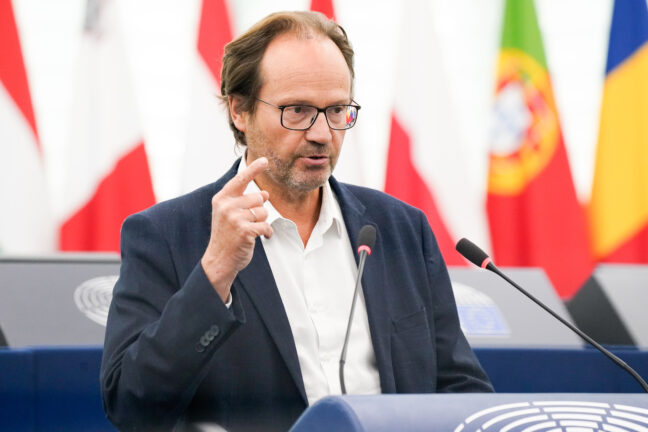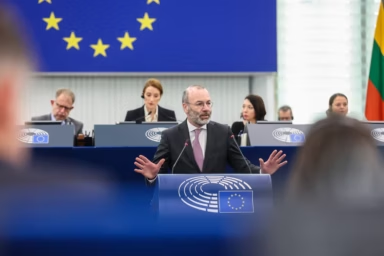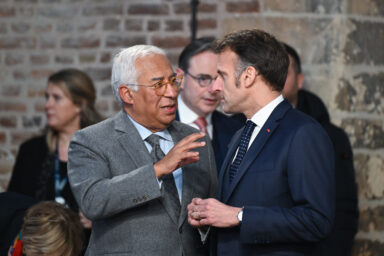The European Commission wants to see nearly €865 billion of spending—close to half of the nearly €2tn MFF budget—directly tied to respect for rule of law principles, extending conditionality to previously seemingly untouchable cohesion and agricultural funds. For many across the Union, this marks a step toward defending democratic values. Others see it as an unfair push for political uniformity.
Last week’s debate in the European Parliament shows that concerns remain about how consistent and transparent application the mechanism enjoys. The Conditionality Regulation, introduced in 2021, provides the legal foundation for this approach. It safeguards the EU budget against breaches of the rule of law in member states, defining the rule of law as encompassing legality, legal certainty, and adequate judicial safeguards. The European Commission is to assess whether violations threaten the financial interests of the Union and, if so, to trigger corrective measures such as suspending payments.
Recently, the Parliament published its draft report on the implementation of the rule of law conditionality regime, in which it raised various concerns. It called for strengthening the conditionality process, providing clear legal grounds at every step. It argued that the Commission should make the criteria for assessing whether a breach of the rule of law has occurred more uniform, alongside improving communication with member states.
Further, measures must follow objective standards: financial sanctions should be predictable and fair, conditions for lifting them unambiguous, and remedial actions systematically monitored. The report also calls for more flexible approaches to ensure that EU funds still reach final beneficiaries, even where national governments are in breach. Finally, the European Parliament wants guaranteed involvement at every stage, with full access to information to ensure accountability and oversight.
You might be interested
Parliament’s debate
The Parliament’s draft report has drawn a wide spectrum of reactions, but overall underlined more transparency. Co-rapporteur Jean-Marc Germain (S&D/FRA) welcomed the push for conditionality but flagged confusion over how this specific instrument interacts with others tools meant to incentivize member states to comply with rule of law principles. For example, ‘horizontal enabling conditions’ also make funds such as the European Social Fund subject to certain requirements. Money from the Recovery and Resilience Facility (RRF) has also been out of reach for Warsaw or Budapest over rule of law concerns.
Mr Germain therefore urged the Commission to avoid arbitrary changes and asked for more timely information sharing with Parliament, which he noted has not happened sufficiently in the past. Concretely, he proposed quarterly structured dialogues to improve oversight. For Mr Germain, Article 2 values remain the cornerstone of the Union, and the focus should be on “smart conditionality” that balances firmness with clarity.
Co-rapporteur Monika Hohlmeier (EPP/DEU) echoed the need for clearer, more transparent procedures. She noted diverging interpretations within the Commission itself: should the regulation be available as a very last resort, or as a preventative tool when breaches risk escalating? From her point of view, guidelines need revisions to clarify proportionality and assessment standards. Tying the mechanism more firmly to the RRF is also essential, she argued, to prevent corruption and misuse of EU funds. Like Germain, she insisted Parliament must receive more detailed information to fulfil its oversight role.
Politicised tool
For some, even Parliament’s calls for more transparency make no difference in their conviction that the mechanism is little more than a politicised tool used by Brussels. MEP Tamás Deutsch (PfE/HUN) denounced the regulation as an attack on Hungarian sovereignty. Rejecting what he described as “moral superiority” from Brussels and Berlin, he warned that Hungary would not accept dictates on its political or cultural choices, explicitly rejecting EU approaches to migration and LGBTQ+ rights. For Mr Deutsch, conditionality is nothing more than an illegitimate intrusion into national liberty.
MEP Bogdan Rzońca (ECR/POL) echoed that, accusing the EU of politicising the distribution of funds, claiming that Polish communities have been deprived of RRF money while resources were misallocated to allies of Donald Tusk. He argued that oversight bodies like OLAF should investigate such mismanagement instead of targeting governments selectively.
Calls for ambition
On the other side of the spectrum, MEP Moritz Körner (Renew/DEU) urged a more ambitious approach. He pressed for integrating a single market perspective into the conditionality framework, warning that Hungary had been treated too leniently and Poland prematurely rewarded despite unmet conditions. For him, consistency is the missing ingredient, and Parliament must be placed on an equal footing with the Commission in enforcement.
Finally, MEP Rasmus Nordqvist (Greens-EFA/DNK) called for more proactive use of the mechanism, including technical briefings from the Commission tied specifically to the MFF negotiations. For him, the lesson is clear: only consistent, transparent enforcement will convince Europeans that the EU is serious about defending its own founding values.
Ms Hohlmeier reminded her colleagues that, at the end of the day, Parliament does not make the legal decision on whether a rule of law breach has occurred. That responsibility lies elsewhere. But the Parliament remains a political decision-making body, one determined to strengthen its voice in shaping how conditionality will be applied in the years to come.











